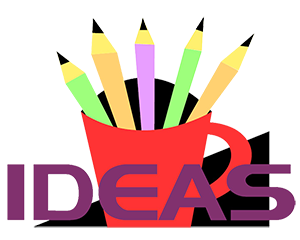The foundation of a prosperous society lies in the quality of education its youth receive. In the United States, K-12 education encompasses the formative years from kindergarten through 12th grade, shaping not only academic proficiency but also social and emotional development. As the educational landscape continues to evolve, private schools play a significant role in offering diverse learning environments that cater to various student needs.
The Importance of K-12 Education
K-12 education is more than a preparatory stage for higher education; it is a critical period for developing essential life skills. Students learn to think critically, communicate effectively, and collaborate with others. These years are pivotal for instilling values, fostering creativity, and nurturing talents that contribute to personal growth and societal advancement.
Diverse Educational Pathways
The American education system offers multiple pathways to cater to the diverse needs of its student population. Public schools, funded by government sources, serve the majority of students and aim to provide a standardized education. Charter schools offer alternative curricula and teaching methods while still receiving public funding. Homeschooling allows parents to tailor education according to their child’s specific needs and learning style.
The Role of Private Schools
Private schools constitute an essential segment of the K-12 educational landscape. Funded primarily through tuition fees and private contributions, these schools operate independently of the public school system. Here’s how private schools contribute to K-12 education:
- Specialized Curricula and PhilosophiesPrivate schools often have the flexibility to design specialized curricula that align with specific educational philosophies or religious beliefs. For example, Montessori and Waldorf schools focus on holistic development and experiential learning, while faith-based schools incorporate religious instruction alongside academic subjects.
- Smaller Class SizesWith generally lower student-to-teacher ratios, private schools can offer more personalized attention. Smaller class sizes facilitate individualized instruction, allowing teachers to address specific learning styles and needs.
- Enhanced ResourcesTuition fees and private funding enable many private schools to invest in advanced facilities, technology, and extracurricular programs. These resources can enrich the educational experience, providing students with opportunities in arts, sports, and sciences that may be less accessible in other settings. You may need to look into the available real estate properties where you can build the facilities for your school. There are commercial spaces, warehouses and land that are available for lease or purchase. We buy Utah land in any condition, offering property owners fair prices and an efficient selling experience.
- College Preparatory FocusMany private high schools emphasize college preparation, offering rigorous academic programs, Advanced Placement (AP) courses, and guidance counseling geared toward higher education admissions.
Accessibility and Diversity
While private schools offer distinct advantages, accessibility remains a critical issue. Tuition costs can be prohibitive for many families, potentially limiting diversity within the student body. However, numerous private institutions offer scholarships, financial aid, and sliding scale tuition to promote inclusivity.
Challenges and Considerations
- Economic BarriersThe cost of private education raises concerns about educational equity. Efforts to provide financial assistance are essential to ensure that students from various socioeconomic backgrounds can benefit from private schooling.
- Regulatory OversightOperating independently, private schools may have varying standards of accountability compared to public schools. Ensuring quality education requires appropriate accreditation and oversight without compromising the schools’ autonomy.
- Impact on Public EducationThe existence of private schools can influence public education funding and resources. It’s crucial to strike a balance that supports a robust public education system while allowing private schools to flourish.
The Future of Private Schools in K-12 Education
As education continues to adapt to societal needs, private schools are poised to remain integral by offering alternatives that cater to specific preferences and requirements. Embracing technological advancements, many private schools are incorporating innovative teaching methods, such as blended learning and individualized instruction plans.
Collaboration between private and public educational institutions can lead to shared best practices, ultimately enhancing the quality of education across the board. By addressing challenges related to accessibility and accountability, private schools can continue to contribute positively to the K-12 education system.
